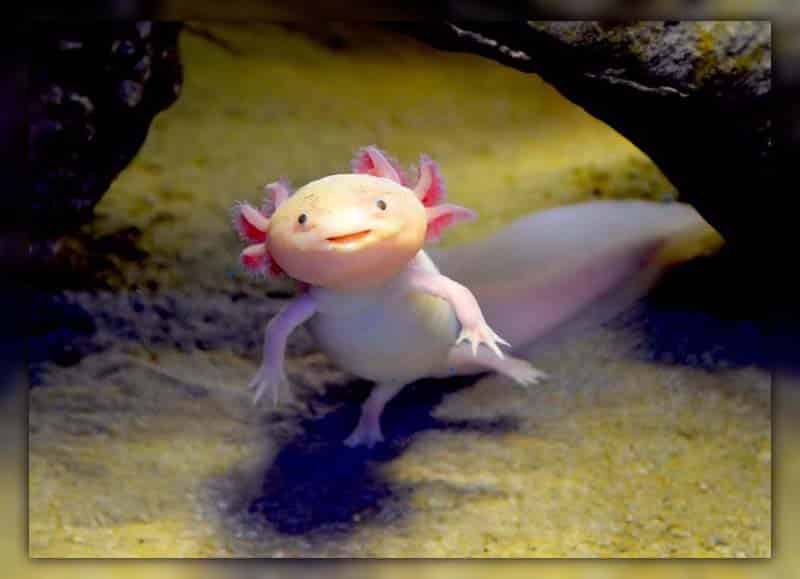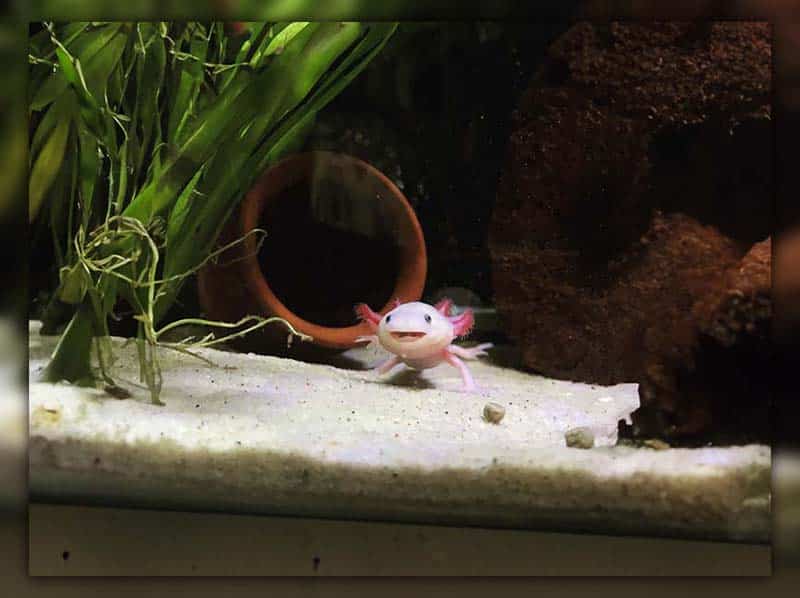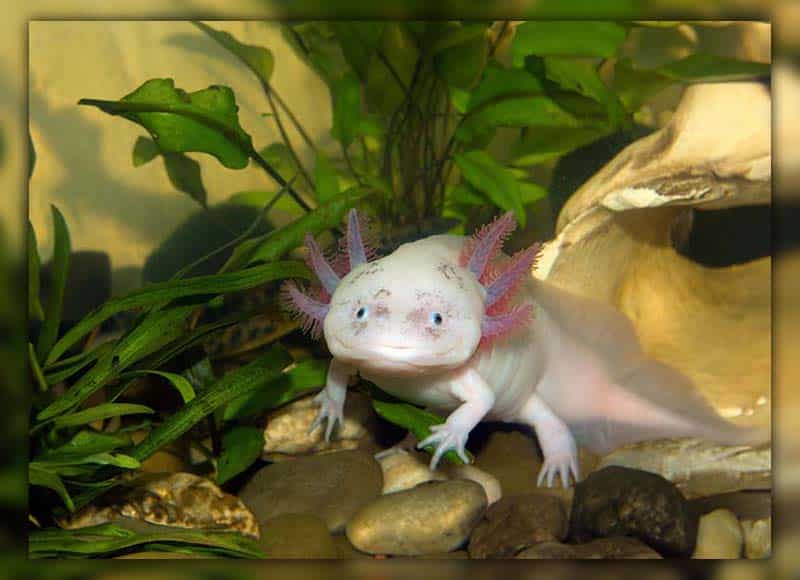In the world of aquatic creatures, axolotls stand out with their distinctive fringed gills and a perpetually larval appearance that continues throughout their lives. Originating from the remnants of Xochimilco, a network of lakes and canals near Mexico City, these creatures are often referred to as “Mexican walking fish”
Their unique characteristics raise an intriguing question can Axolotls go on land? To answer this, we must explore the biological and physiological features of this captivating species.
What Are Axolotls?
Axolotls are a special type of salamander known as neotenic, which means they maintain their youthful features even as adults. They originate from Lake Xochimilco and Lake Chalco in Mexico City, Mexico. Unlike most amphibians, axolotls can reach adulthood without undergoing metamorphosis, allowing them to keep their gills, fins, and tail throughout their lives.

These unique creatures are often kept as pets due to their captivating nature. They are relatively easy to care for and known for their resilience. However, it’s essential to be aware that axolotls are currently endangered in their natural habitat, emphasizing the importance of obtaining them from reputable breeders.
Can Axolotls Live On Land?
Indeed, axolotls are exclusively aquatic beings. Their physiology is specifically designed for life in water. They possess gills, fins, and a tail, all of which aid in swimming and respiration within an aquatic environment. Additionally, their skin is thin and delicate, making it vulnerable to drying if not kept moist.

Although axolotls can venture out of the water briefly, they cannot sustain themselves on land for extended periods. Prolonged exposure to a land-based environment can lead to dehydration and potential health issues due to the risk of their skin drying out. It’s essential to ensure they have a suitable aquatic habitat to thrive and maintain their well-being.
Why Can’t Axolotls Live On Land?
Axolotls are exclusively aquatic due to their specialized anatomical features. Their gills, fins, and tail are finely tuned for an aquatic lifestyle. Gills enable them to extract oxygen from water, fins aid in efficient swimming, and the tail propels them through their watery habitat—adaptations not suited for land-based living.
Furthermore, their skin lacks protective scales and is fragile, making it susceptible to rapid drying when exposed to air. Unlike some amphibians that can respire through their lungs, axolotls solely rely on gills for breathing, a characteristic they maintain throughout their life stages due to being neotenic salamanders.

How Long Can Axolotls Stay Out Of Water?
Axolotls can stay out of water for about an hour, as long as the area remains adequately moist. However, it’s important to note that this is a general guideline, and the actual duration an axolotl can spend out of water may vary based on several factors, including age, size, environmental temperature, humidity, and the overall health of the axolotl.
What To Do If You Find An Axolotl Out Of Water
If you come across an axolotl out of water, prompt action is crucial to its well-being. Follow these steps:
- Gently pick up the axolotl and place it in a container filled with cool, dechlorinated water. If dechlorinated water isn’t available, use tap water that has been left to stand for at least 24 hours.
- Ensure that the water covers the axolotl’s entire body, allowing it to submerge comfortably.
- Place the container in a cool, dark area to reduce stress and aid in recovery.
- Keep a close eye on the axolotl for any signs of distress, such as rapid breathing, gasping, or lethargy.
- If the axolotl shows no signs of improvement or seems distressed, it’s advisable to seek assistance from a veterinarian experienced in aquatic species.

Can Axolotls Breathe Air?
Yes, axolotls possess the ability to breathe air, but it’s important to note that they cannot solely rely on air for respiration, unlike some other amphibians like frogs and toads. As neotenic salamanders, axolotls retain their juvenile features into adulthood, including their gills, which are their primary respiratory organs throughout their lives.
In addition to gills, axolotls have rudimentary lungs that allow them to extract oxygen from the air. However, these lungs are not as developed as those of other amphibians, so axolotls cannot depend solely on their lungs for survival. Their ability to breathe air is a supplementary mechanism to aid their respiration.

Can They Breathe On Land?
While axolotls indeed possess both gills and rudimentary lungs for respiration, it’s important to clarify that they are not adapted for sustained living or breathing on land. Axolotls can briefly respire outside of water in emergency situations, but it’s unnatural and potentially stressful for them.
Prolonged exposure to a land-based environment can lead to significant stress and respiratory issues for axolotls, making it crucial to return them to their aquatic habitat as soon as possible to ensure their well-being.
Conclusion
In conclusion, axolotls are remarkable aquatic creatures, uniquely adapted to life in water due to their gills, fins, and tails. While they can briefly go on land, their comfort zone remains submerged. Remember, they rely on their watery habitat for survival and should be handled with care when outside it.
For more fascinating insights into aquatic life and captivating underwater wonders, explore our blog at National Park Aquarium. Dive into a world of aquatic knowledge and discover the secrets of the deep. Join us on our journey to unravel the mysteries of the underwater realm!




